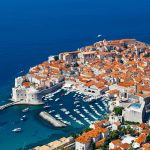Asked about whether the epidemiological measures would be relaxed after February 15, Prime Minister Andrej Plenković said yesterday that “fellow citizens who have shown a great deal of responsibility and patience should be rewarded.” At today’s Government session, Plenković announced the changes, warning that there is still no room for excessive relaxation nor the cessation of the responsible behaviour of all citizens.
“We monitored the development of the epidemiological situation in Croatia, and after talks with the Civil Protection Headquarters, epidemiologists, and members of the Government, we made several decisions,” said Plenković.
The four new measures include:
- enabling caterers to sell coffee to go and thus allow them to do business; February’s fees are valid for the entire month
- allowing the opening of gyms and fitness centres while respecting epidemiological measures, which is good for physical activity and people’s health
- enabling children to study in foreign language schools so that in addition to their regular school activities, they can also attend extracurricular activities
- allowing the opening of bookmakers, slot machine clubs, and casinos, with restrictions on the consumption of beverages
Plenković added that the next analysis of the measures’ effect would be on March 1, 2021. They will decide whether there will be new relaxations or a new tightening up of those epidemiological measures, depending on the epidemiological situation.
Plenković also reported on the situation with the spread of the novel coronavirus in Croatia and the declining trend of new infections. Today, Croatia is third country in the European Union in terms of the weekly average number of confirmed cases per million inhabitants. We have the fifth largest two-week drop in the number of deaths.
“At the same time, we’re still in the winter months, and a strong wave of cold weather has been announced. The British variant of the virus has also been identified in Croatia. Many European countries are extending or tightening up their measures. After the initial delays in the delivery of vaccines, we have indications that Pfizer and AstraZeneca’s delivery dynamics will accelerate, and we can expect larger quantities by the end of March. So far, we’ve received about 150,000 doses, and we expect more than 600,000 doses by the end of March, which means that we will be able to vaccinate a much larger number of our fellow citizens,” said Plenković.
He pointed out that all three vaccines – Pfizer, Moderna, and AstraZeneca – are all one hundred percent effective in preventing death from the virus. They are also effective against the need for respirators and the development of more severe symptoms.
“There are no obstacles which would suggest that people over 65 should not receive the AstraZeneca vaccine,” said Plenković, adding that they want to vaccinate as many people as possible who are at risk.
Health Minister Vili Beroš reported that the vaccine’s 669 side effects had been reported, and they were most commonly just mild reactions.
“The number of new cases is continuing to fall from week to week. We’re monitoring the spread of new variants of this virus. Continuing the vaccination process is our tool for success. Today, we mark the World Day of the Sick. Special emphasis is placed on emotional struggles, and as such I’d like to thank our healthcare professionals,” Beroš said.
To read more news about coronavirus in Croatia, follow TCN’s dedicated page.












